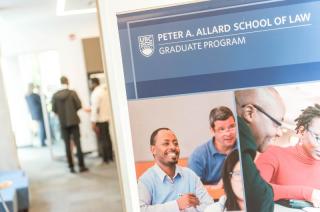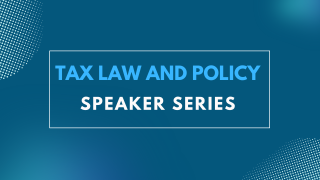The LLM in Taxation is a flexible course-based professional master's program that provides lawyers and accountants with in-depth practical knowledge and technical expertise in tax law.
Our specialized program builds your foundational tax law knowledge and hones your expertise in your areas of interest through a wide selection of elective courses.
If you're ready to take the next step to advance your career, earn your LLM in Tax in 1 year through full time studies, or 2 years part-time.

Curriculum
Discover the required core and electives courses to earn your degree.

Tuition, Fees & Funding
Tuition fees, scholarship and bursary information to help you plan your finances.
LLM Tax Faculty
Learn about the program instructors and their expertise.

Program Eligibility
Review the minimum education, credentials and English language requirements.

How to Apply
Application deadlines, how to and everything you need to know to apply now.

Frequently Asked Questions
Review some of our commonly asked questions.

Tax Law and Policy Speaker Series
The Tax Law and Policy Speaker Series at Allard Law is an academic, interdisciplinary forum for disseminating research on tax law and policy. In past years, the series has featured many leading scholars of tax law and policy from Canada and the rest of the world. The series is often (though not exclusively) held in conjunction with a Tax Policy seminar course offered to UBC law students. Many sessions are open to the public.